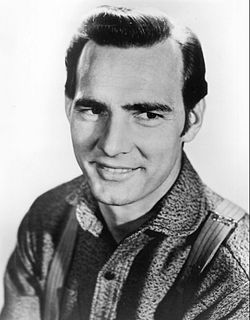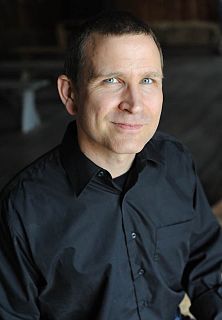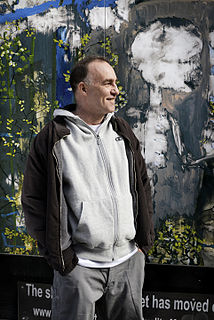A Quote by Dale Jamieson
The idea that we would raise billions of sentient animals, treat them horribly, pollute our waterways with their waste, compromise the effectiveness of our antibiotics so that they grow faster, and then slaughter them with little regard to their suffering so that we can feed off their corpses, will seem to most people unthinkably cruel and barbarous - sort of in the way that we think of medieval punishments, or Europeans today think of the death penalty.
Quote Topics
Related Quotes
I think there will come a time when civilized people will look back in horror on our generation and the ones that have preceded it; the idea that we should eat other living things running around on four legs, that we should raise them just for the purpose of killing them! The people of the future will say 'meat-eaters' in disgust and regard us in the same way that we regard cannibals and cannibalism.
If we really believe that animals have the same right to be free from pain
and suffering at our hands, then, of course we?re going to be, as a
movement, blowing things up and smashing windows ? I think it?s a great way
to bring about animal liberation ? I think it would be great if all of the
fast-food outlets, slaughterhouses, these laboratories, and the banks that
fund them exploded tomorrow. I think it's perfectly appropriate for people
to take bricks and toss them through the windows ... Hallelujah to the
people who are willing to do it.
When there is hallucination, there is the truth, by recognising it as hallucination. Where there is suffering, there is peace and bliss, by letting go and experiencing it for numberless suffering sentient beings. Always think of how others are kind and precious Treat them as you would like to be treated.
One of the things I think the next president has to do is to stop fanning people's fears. If we spend all our time feeding the American people fear and conflict and division, then they become fearful and conflicted and divided. And if we feed them hope and we feed them reason and tolerance, then they will become tolerant and reasonable and hopeful.
The suffering that food animals undergo, the suffering of those who eat them and profit by them, the suffering of starving people who could be fed with the grain that feeds these animals, and the suffering we thoughtlessly impose on the ecosystem, other creatures, and future generations are all interconnected. It is this interconnectedness of suffering, and its reverse, of love, caring, and awareness, that calls out for our understanding.
Somebody said to me the other day, 'You know, it's really senseless, what you're doing. There's always been suffering, there will always be suffering, and you're just prolonging the suffering of these children [by rescuing them].' My answer is, 'Okay, then, let's start with your grandchild. Don't buy antibiotics if it gets pneumonia. Don't take it to the hospital of it has an accident. It's against life-against humanity-to think that way.
Some meat eaters defend meat eating by pointing out that it is natural: in the wild, animals eat one another. The animals that end up on our breakfast, lunch, and dinner plates, however, aren't those who normally eat other animals. The animals we exploit for food are not the lions and tigers and bears of the world. For the most part, we eat the gentle vegan animals. However, on today's farms, we actually force them to become meat eaters by making them eat feed containing the rendered remains of other animals, which they would never eat in the wild.
I think the Native Americans had the right idea about preserving and respecting the earth. Not just using it up. We are not the center of the universe and that we think we are will most likely be the end of us. Then nature will go on its way, with humans only being a faint ugly memory. And yes I am fond of animals or most of them.
Most of the food crops raised in the world today are fed to livestock destined for slaughter for us to eat, and most of the water used is used to raise the food crops that are fed to those animals. It has been estimated that, because of the extraordinary amount of grain it takes to raise food animals, if we reduced the amount of meat we eat by only ten percent, that would free up enough grain to feed all the starving humans in the world. So when we choose to eat meat instead of vegetables, we are choosing to take food away from others who are hungry.
In theory we understand people, but in practice we can't put up with them, I thought, deal with them for the most part reluctantly and always treat them from our point of view. We should observe and treat people not from our point of view but from all angles, I thought, associate with them in such a way that we can say we associate with them so to speak in a completely unbiased way, which however isn't possible, since we actually are always biased against everybody.
I think that idea that sort of our emotional self and our emotional life is a faucet that you turn on and off, and that we are in control of it entirely, that's a really appealing idea for a lot of people. But there are certainly the times where it's appealing to me, but it never quite works the way I hoped it would.































